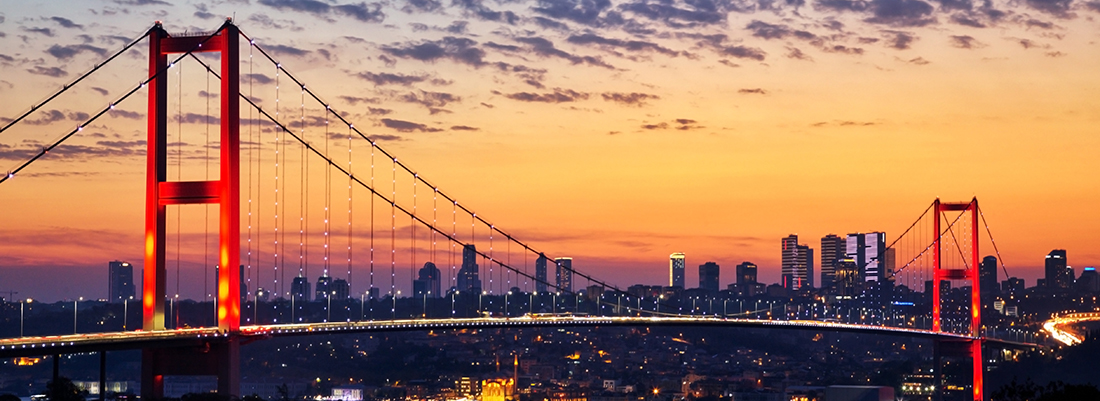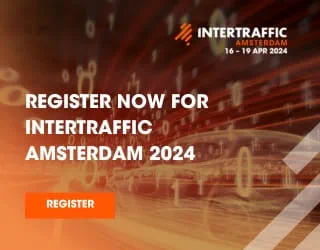Turkey’s transportation and logistics sector is one of the country’s fastest growing industries—tripling in value since 2002, with an average 20% annual growth rate. This growth combined with Turkey’s strategic location as a bridge between East and West is creating new opportunities for U.S. exporters of transportation and intelligent technologies. Turkey is not only a major transit country, but also a key freight destination. Given Turkey’s increasing population – now close to 80 million – and inward migration to larger cities from rural areas, traffic has become a crucial issue, compelling local municipalities to invest heavily in Intelligent Transportation Systems (ITS). As a result, Turkey has doubled its transportation industry investment budget from 20 to 40% over the last decade. This sector is dependent on critical foreign technologies such as ITS, thus providing opportunities for U.S. firms in this area.
Other reasons to consider Turkey are its rapid growth in the last 40 years – GDP per capita tripled from 2002 to 2012 - and its economic ambitions to become a top-ten economy by 2023, the 100th anniversary of the founding of the Turkish Republic. Additionally, Turkey’s Customs Union Agreement with the European Union (EU) and its currently stalled application for full EU membership is pushing the transportation industry to consider new investments in Turkey. Turkey’s current transportation network is below EU-27 standards. Even if EU accession does not occur in the near future, Turkey has an ambitious goal to comply with all EU rules and regulations, as a majority of its foreign trade is with Europe.
U.S. firms have a comparative advantage in high-tech products; therefore, they are encouraged to take advantage by forming agreements to act as suppliers of these types of specialized technologies to Turkish firms.
The influence of the transportation sector is expected to increase more in the future, as many highway, railway, and other transportation-related projects are either already underway or expected in order to accommodate the needs of an increasingly industrialized country in the years to come. Experts believe that “combined transportation” will have a very big share in the transportation industry. Further on the horizon, due to the increased infrastructural partnership between private and government enterprises, marine and railway freightage will have a big role in cargo moving for combined transportation. The Government of Turkey has committed to new investments in this sector to keep up with future demand which is expected to reach the following targets in 2023, the centennial of the Turkish Republic:
- Foreign trade volume to reach $1.1 trillion, with $500 billion in exports and $600 billion in imports.
- Transported cargo to reach 625 billion tons.
Below are planned transportation projects:
Railroads
The Turkish Government has prioritized improvements in this sector:
- Liberalization of the rail system (state will maintain ownership, but private transportation companies will be able to transport cargo in their own wagons).
- 10% share increase for passenger rail and 15% for cargo transportation rail.
- “Modern Iron Silk Road” to be completed by 2023 to establish rail connection between the Far East and Western Europe.
- Marine ports to be connected to railroads.
- Total rail length will reach 25,000km, with new 10,000km high-speed rail, in addition to additional 4,000km of conventional rail.
- 8000 km of existing rail to be restored and modernized with new signal systems.
- Main stations and terminal stations to be renovated and new terminal stations for high-speed trains to be constructed.
- High-speed rail: 3,500km; fast rail: 8,500km; conventional rail: 1,000km.
- Electrification and signal systems for each, along with renovation of existing lines.
- New metro lines/light rail systems/trams in larger cities.
Air:
- Planned airports: 8
- Terminal buildings: 4
- Turkey ranks 9th in the world and 3rd in Europe in terms of passenger volume; 3rd airport being built in Istanbul.
Land Transportation (Roads & Highways):
- 23,522km of existing divided roads with plans to increase to 37,000km.
- 5,748km of highway construction to be completed by 2023.
- 9,000 bridges/viaducts with total length of almost 600km to be completed.
- Third bridge on the Bosphorus to be constructed.
- Izmit Bay Suspension Bridge (4th largest in the world with 1,550m-long center span).
- Canakkale 1915 Suspension Bridge (will be world’s longest with 2023m center span).
- Eurasia Tunnel (opened in 2016 and is the second under-the-sea tunnel in Istanbul for automobiles).
- 3-floor Istanbul tunnel (metro & automobiles).
- 238 tunnels with total length of 346km (including metro lines).
Marine Transportation:
- “Three Big Ports along the Three Big Seas” project on the Aegean, Black Sea and Mediterranean aiming for three transfer ports in every sea surrounding the country:
- West on Aegean Sea - Candarli port: will be among the first transit ports in Europe with a 12 million twenty-foot equivalent unit (TEU) capacity.
- North on Black Sea - Filyos port: with 25-million ton capacity.
- South on Mediterranean Sea - Mersin port expansion.
- Container transportation capactity will reach $32 billion.
- Liquid cargo will reach a capacity of 350 billion tons and dry cargo, 500 billion tons.
- Turkey will rank among top ten in the world with regard to ship size.
- Increased combined/multimodal/intermodal types of transportation.
- Marina capacity to increase to 35,000 ships.
- Construction of seven new cruise ports.
- Higher emphasis on sustainability and efficiency through projects like “Green Port”.
- Kanal Istanbul: alternative to straits that connect Black Sea and Mediterranean (43km long and 400m wide).
Leading Sub-Sectors:
All high-technology systems, products, equipment in all modes of transportation, including those related to Intelligent Transportation Systems are in great demand. Below are some examples:
- Traffic engineering, management, measurement, control and signal systems.
- Electronic detection, and camera and security systems.
- Variable message, communication and digital information systems.
- Lighting systems.
- Tunnel SCADA, vehicle tracking and fleet management, data management.
- Marine technology: port superstructure, vessel tracking systems, oil spill detection and contingency preparedness, underwater mapping.
Source: Export.gov







